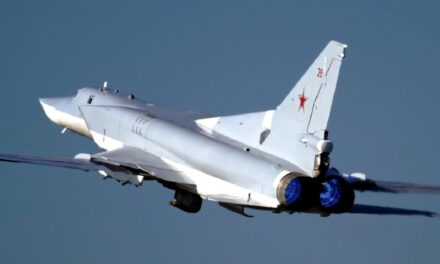We support our Publishers and Content Creators. You can view this story on their website by CLICKING HERE.
Key Points and Summary: As Turkish forces prepare to attack Kurdish self-governance in northeast Syria, Syrian Kurds face an existential threat under the incoming Trump administration, which may prioritize relations with Turkey.
-Advocating for ties with Taiwan could shift the geopolitical calculus, highlighting how Turkish aggression aligns with Chinese interests and undermines Trump’s agenda to counter Beijing. Taiwan could provide military support and international recognition, just as it has strengthened ties with other regions under threat.
-While this partnership wouldn’t fully resolve the Kurds’ challenges, it could draw attention to their cause and complicate Turkey’s growing ties with China. Time is critical for action.
Syrian Kurds and Taiwan: A Bold Partnership Against Erdogan
The Turkish Army and the jihadi forces they support in Syria prepare to stamp out the Kurdish self-governing region in northeast Syria. They await only President-elect Donald Trump’s inauguration. The Turks and their jihadist proxies believe Trump will give them a green light to attack Syrian Kurds and end their decade-long federal experiment. They are not wrong. Many Trump supporters see the U.S. presence in Syria as emblematic of the “forever wars” they so fervently oppose. Their hostility toward any U.S. partnership with or advocacy for the Kurds has more to do with ideology than reality. Trump himself simply believes that he can strike deals with Turkish President Recep Tayyip Erdogan over Syria, Iran, Ukraine, and even Gaza. If Syrian Kurds are the price Erdogan demands, so be it.
Human rights advocacy will not sway such a mindset. Turkey also pays enough people, some directly as registered foreign agents and many former diplomats and think tanks analysts as unregistered lobbyists to throw enough flak into the debate to downplay Turkey’s promotion of Sunni extremism and Islamist terror. While a Turkish conquest of northeastern Syria will likely lead to a mass prison break from the complex holding over ten thousand of Islamic State veterans and their families, Erdogan and his advocates whisper falsehoods to downplay that reality.
If the Kurds are to survive, no amount of rapid U.S. deployment in the twilight of the Biden administration will matter, since Trump can simply reverse this. Other countries—Israel and the United Arab Emirates, for example—could supply Syrian Kurds with drones, anti-aircraft missiles, anti-tank rockets, and landmines—but likely will fall short. For Israel, speaking about the Kurds has always been a rhetorical tool to play against Turkey, but Ankara gambles successfully on Jerusalem’s insincerity.
Given Trump’s intended focus on countering China, Syrian Kurds should aim for a Hail Mary diplomatic pass to change the conversation and reach out to Taiwan. Just as ties with Taiwan put Somaliland more firmly on the U.S. radar and the Trump White House’s map, a similar move by Rojava might highlight to Trump that caving to Erdogan would undermine Trump’s own agenda to counter Communist China.
After all, Turkey is a weak link on China. NATO member or not, Turkey’s military exercises with the People’s Liberation Army, and Erdogan seeks to intertwine Turkey and China economically, even if he must be silent on the Chinese genocide against the Uyghurs to do it.
Indeed, as China has bought Erdogan, the would-be leader of the Islamic world quietly hands Uyghur dissidents back to China where they face prison, torture, or worse.
Taiwan cannot singlehandedly rescue the Kurds, though they could provide weaponry. Because Turkey has downgraded its trade with Taiwan, Ankara has also lost leverage over Taipei. Turkophiles in the United States might argue that such a Taiwanese move could drive Erdogan into a relationship with Xi Jinping, but the two leaders are already well past their third date.
Trump may still walk away from the Kurds, but he should recognize that doing so undermines his broader agenda. The fight against Chinese influence will not only be fought in the South China Sea, but also in Africa, the Middle East, and Latin America. The United States is late to engage but should cultivate allies in the new cold war wherever Washington can find them. Rojava—Syrian Kurdistan—may be peripheral to many Americans, but every territory and region counts.
T-93 sniper rifle with the Taiwanese team competing in the International Sniper Competition at Fort Benning, Georgia in 2010.
For too long, Syrian Kurdish outreach to America has been both anemic and lacked creativity. The next months will be rough for Syrian Kurds; they should waste no time changing the conversation and upping their global game.
About the Author: Dr. Michael Rubin
Michael Rubin is a senior fellow at the American Enterprise Institute and director of policy analysis at the Middle East Forum. A former Pentagon official, Dr. Rubin has lived in post-revolution Iran, Yemen, and both pre- and postwar Iraq. He also spent time with the Taliban before 9/11. For more than a decade, he taught classes at sea about the Horn of Africa and Middle East conflicts, culture, and terrorism, to deployed US Navy and Marine units. Dr. Rubin is the author, coauthor, and coeditor of several books exploring diplomacy, Iranian history, Arab culture, Kurdish studies, and Shi’ite politics. The author’s views are his own.

 Conservative
Conservative  Search
Search Trending
Trending Current News
Current News 





